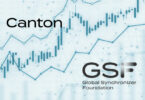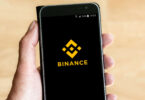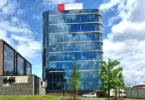Today Digital Asset, the company behind the Daml smart contract language, announced a $120 million Series D funding from Eldridge and 7RIDGE. In previous rounds, the company was backed by the likes of Accenture, Citi, Goldman Sachs, IBM, JP Morgan, and others. While the startup is known for its strengths in financial services with clients like the Australian and Hong Kong stock exchanges, it’s also active in other sectors such as healthcare and insurance.
In late 2019, the company raised a $35 million Series C, bringing total funding to $150 million. Since then, VMWare, Samsung Ventures, and Salesforce Ventures have joined as investors adding another $10 million. VMWare now provides the ledger for the Australian Securities Exchange (ASX) project.
Carsten Kengeter and Veronica Augustsson of 7RIDGE have joined the Digital Asset Board. Kengeter was previously CEO at the Deutsche Börse at the time the stock exchange first invested in Digital Asset. Augustsson was formerly CEO of Cinnober Financial Technology before Nasdaq acquired it. Cinnober, like Digital Asset, provides technology solutions to numerous stock exchanges around the world, and Rooz first met Augustsson through the two companies’ relationship with the ASX.
“The reasons we chose to work with them is because they understand the markets that we want to operate in and are already operating in,” said Rooz. “They can help open doors and make doors stronger than they are today. It’s more of an appreciation of what it means to build a company in this space.”
Strategic endorsement of Daml, interoperability
The funding is a major endorsement of Digital Asset’s strategic direction. CEO Yuval Rooz took the helm of the startup in March 2019, three months after Blythe Masters stepped down. Before that, the company already had Daml and the massive ASX project but was competing head-to-head with R3’s Corda, Hyperledger Fabric and Ethereum for enterprise blockchain distributed ledgers.
Rooz chose to pivot, downplaying Digital Asset’s own ledger, open-sourcing Daml and enabling it to run across multiple blockchain technologies and centralized databases such as PostgreSQL and Amazon Aurora. Now more than 50% of clients are using Daml for non-blockchain deployments.
“We have clients that have aspirations to run these applications on blockchain, but they’re not ready for it yet,” said Rooz. “So they’re using Daml today with the hope that a year or two from now if they wanted to deploy it on blockchain technology, the application would be fully portable.”
Other clients might want to switch between blockchain ledgers and with Daml the idea is they can do so without needing to rewrite all the application logic.
Because Daml works with centralized databases, it means internal data silos can also be synchronized. “Even within organizations today, you have silos of data. And by using Daml they’re breaking this internal reconciliation issue,” said Rooz.
As of last year, Daml could run on multiple ledgers, but one at a time. However, it was working on making it interoperable across ledgers. Its new interoperability solution Daml Canton means it’s possible to synchronize data not just across blockchains but also with centralized databases. So an industry shared ledger could be synchronized with an internal database. There are already clients using Daml Canton and it will be made generally available later this year.
The vision
A comment from one of the incoming investors touches on the big picture. “Digital Asset has the expertise to build the future of data management, creating a trusted ecosystem of data sharing and synchronization that spans organizations, both internally and externally,” said Michele Trogni, Operating Partner at Eldridge.
Rooz emphasized that the company’s vision is about this data sharing and synchronization.
“A lot of times, companies say they don’t have the technical expertise to build these sophisticated data solutions,” explained Rooz. And hence they give away their data to a SaaS provider.
“We think by doing that, you’re effectively giving away your most valuable resource, which is your data,” said Rooz. “So we’re saying you could actually build these very sophisticated solutions without having the engineering team of a Google or Facebook. And by doing that, you’re taking ownership and control over your data.”
What are these data solutions? The company sees the ‘digital assets’ and the so-called global economic networks as data networks that run on different technologies.
“When there’s a clear business case, to create this data connectivity should not require a re-architecture of your entire stack, but rather simply building a workflow or a very thin application that will allow this real composability,” said Rooz.
“So for us, the vision is much bigger than blockchain,” Rooz continued. “In our opinion, Daml is the best application framework to build these data solutions that would be composable, would run on different technologies, centralized versus decentralized, on cloud versus not. And really the world wants to get to this really clean way of managing its data.”






